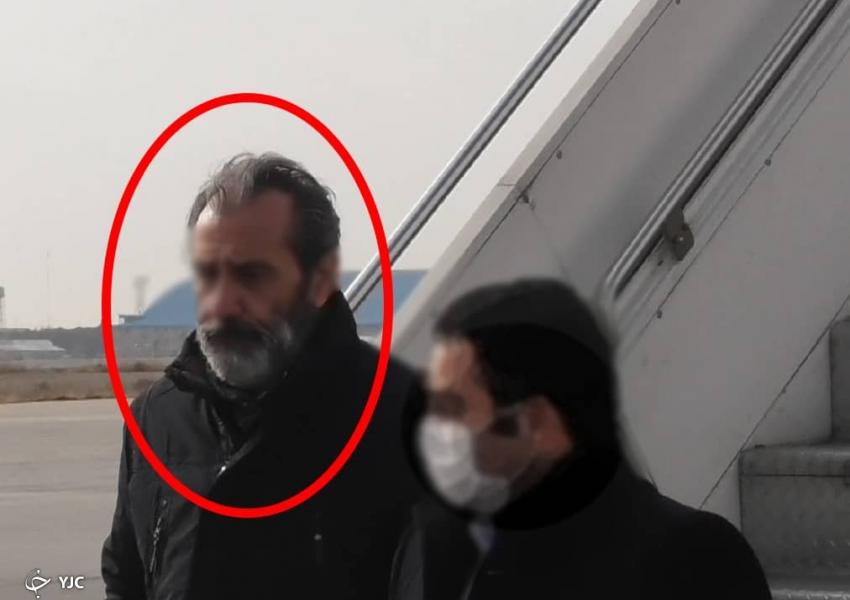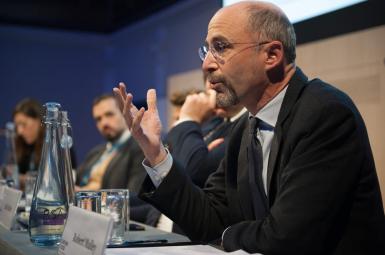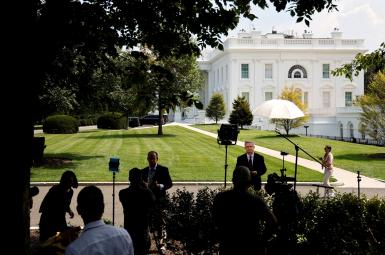
Detained Iranian-American Businessman Alleged To Be Iran’s Latest Hostage
Days after an Iranian media outlet reported the arrest and conviction of Emad Sharghi, an Iranian-American businessman, Persian-language media outside Iran have called him the latest hostage held by Iran to use as a bargaining chip with the United States.
On January 14, the Young Journalists’ Club (YJC), which is affiliated to the state broadcaster, reported that the 56-year-old businessman was arrested on December 6. The report said he had been sentenced to ten years in prison on charges of espionage and collecting military intelligence but had attempted to flee while on bail awaiting the result of an appeal. A photo published by YJC showed Sharghi led away by security forces at an airport, presumably while planning to leave the country.
On Monday, the UK-based Kayhan, an opposition newspaper, in an article headlined “Another Hostage?” wrote that Sharghi had created a branch of Dubex Group, a Danish risk management and IT security company, in the United States, and that he has two decades of business experience in the petrochemical industries and aviation.
Sharghi’s case was brought to wider attention by a family statement reported by NBC News on Monday. “It’s been more than six weeks since he was taken and we have no idea where he is or who has him,” the statement read. “Out of caution for his well-being, we’ve never spoken publicly about his case and don’t wish to now. Please pray for Emad and for his safe return home.” NBC News said that jailing the businessman threatened to complicate plans of President-elect Joe Biden, who takes office on Wednesday [January 20] to resume diplomacy with Iran.
According to Iranian media, Sharghi served as the international deputy head of Sarava, a major Iranian holding company, but following the announcement of his arrest, Sarava said on Saturday that Sharghi’s involvement had ended in May 2018. Sarava also said that while the case against Sharghi had been opened before July, it was unrelated to Sarava and that Sharghi had no access to information on Diji Kala, Divar, Ali Baba and the other companies in the holding’s portfolio or their clients.
Allegations that dual nationals are taken prisoner to swap them with Iranian prisoners held abroad, often serving sentences for violating US sanctions or on ‘terrorism’ charges, have been made in several cases of dual nationals detained in Iran. On December 4 a group of foreign nationals and dual citizens who had been imprisoned in Iran wrote to world leaders saying they had been used as hostages and urging them to put pressure on Iran to free Iranian-Swedish doctor, Ahmad-Reza Djalali (Jalali), 49, who they said was in imminent danger of execution.
Jalili’s wife, Vida Mehrannia, told Iran International on November 25 that her husband was “a victim of Iran's relations with Europe,” so fueling speculation that Iranian authorities sought, by threatening his execution, either to influence the trial of Iranian diplomat Assadollah Assadi in Belgium or to secure a prisoner exchange.
In November, three Iranian prisoners in Thailand were exchanged with Australian-British academician Kylie Moore-Gilbert, who was imprisoned in Iran after charges of espionage. Thai officials confirmed the three Iranian men were serving prison terms for their role in a plot to assassinate an Israeli diplomat in 2012. In addition to Sharghi, at least three Iranian-American nationals – businessman Siamak Namazi and his elderly father Bagher Namazi, and environmental activist Morad Tahbaz – are alleged to be held as hostages in Iranian prisons.









